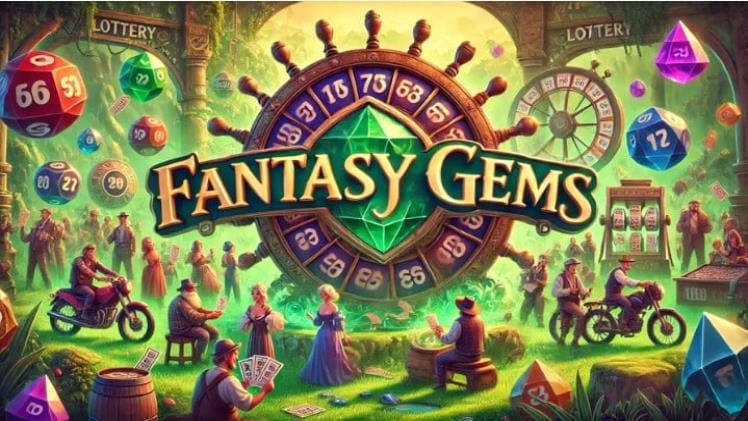The rhythmic pulse of digital slot machines, the strategic intensity of online poker tournaments, and the electrifying anticipation of live-streamed roulette wheels have become the new soundtrack of global entertainment. Across continents, from bustling metropolitan centers to quiet suburban homes, millions of people are experiencing the thrill of gambling through innovative digital platforms that have revolutionized an ancient pastime. This transformation has transcended geographical boundaries and cultural differences, with sophisticated operators like mostbet casino pioneering immersive experiences that capture the excitement of traditional casinos while offering unprecedented convenience and accessibility. The digital gambling revolution represents far more than technological adaptation—it embodies a fundamental reimagining of how humanity engages with games of chance and skill in an interconnected world.
Table of Contents
The Economic Revolution
The economic magnitude of this transformation tells a remarkable story of rapid growth and market expansion. Industry research reveals that the global online gambling market, valued at approximately $91 billion in 2023, is projected to reach nearly $170 billion by 2030—representing a compound annual growth rate exceeding 11%. This extraordinary trajectory significantly outpaces traditional land-based gambling venues, which have experienced modest growth during the same period. In established markets like the United Kingdom and several European Union countries, digital channels now generate more than half of all gambling revenue, with emerging markets across Asia, Latin America, and Africa showing similar adoption patterns.
“What we’re witnessing transcends simple channel migration,” explains Dr. Elena Martinez, senior analyst at the Global Digital Entertainment Institute. “The data clearly demonstrates that online platforms are attracting entirely new consumer segments who never engaged with traditional gambling venues. This represents both demographic diversification and absolute market expansion, creating a substantially larger total addressable market than existed in the pre-digital era.”
The COVID-19 pandemic served as an unexpected catalyst for this already robust growth trajectory. As physical venues faced unprecedented closures and capacity restrictions, established gamblers rapidly migrated to digital alternatives while millions of first-time players discovered online gambling during lockdowns. Industry data indicates that approximately 68% of these pandemic-era converts have remained active digital players even after physical venues reopened, suggesting a permanent shift in consumer preferences rather than temporary behavioral adaptation.
Technology as the Great Enabler
The technological innovations enabling this market expansion have been nothing short of revolutionary. Early online gambling platforms of the late 1990s offered basic experiences with limited game selections, rudimentary graphics, and frequent connectivity issues. Today’s digital gambling environments leverage cutting-edge technologies to create immersive, secure experiences that often surpass their physical counterparts in sophistication, variety, and user engagement.
Live dealer technology represents one of the most significant breakthroughs, directly addressing trust concerns that initially limited widespread online adoption. Advanced streaming capabilities allow players to interact with professional dealers managing physical cards, dice, and roulette wheels from purpose-built studios. Multiple high-definition camera angles, real-time interactive chat features, and intuitive user interfaces create an authentic casino atmosphere that combines the credibility of physical play with the convenience of digital access.
Mobile technology has proven equally transformative, fundamentally altering when, where, and how people engage with gambling activities. The accelerating transition from desktop to smartphone gambling has reached a tipping point, with mobile devices now accounting for over 75% of online gambling activity across most markets. This shift has transformed gambling from a destination activity requiring dedicated time and physical presence to an entertainment option that can seamlessly fill moments throughout daily life—during commutes, lunch breaks, or evening relaxation.
Regulatory Evolution Worldwide
The regulatory landscape has evolved in parallel with technological advancement, transitioning from prohibition-based approaches toward sophisticated frameworks that balance consumer protection with market development. Countries like the United Kingdom, Spain, Italy, and Sweden have established comprehensive licensing systems that emphasize operator accountability, responsible gambling measures, anti-money laundering protocols, and tax revenue generation. This regulatory maturation has provided legitimacy and consumer confidence that has accelerated mainstream adoption.
The United States has followed a particularly complex regulatory path, transitioning from strict prohibition under federal legislation toward state-by-state legalization following a landmark 2018 Supreme Court decision on sports betting. This approach has created a diverse patchwork of regulatory environments that vary dramatically across state boundaries, from fully regulated markets with multiple licensed operators to states where online gambling remains entirely prohibited.
The New Demographics of Digital Gambling
Perhaps the most striking transformation has been the diversification of online gambling demographics. Traditional casino environments historically attracted specific population segments—predominantly male, middle-aged, and concentrated in particular socioeconomic groups. Digital platforms have shattered these demographic constraints, attracting younger players, significantly more women, and individuals from diverse cultural and economic backgrounds who might never have considered entering a traditional gambling venue.
“The accessibility revolution cannot be overstated,” notes Dr. Michael Thompson, a behavioral economist specializing in digital entertainment patterns. “Online platforms eliminate numerous barriers associated with traditional gambling venues—social intimidation factors, geographical limitations, minimum spending requirements, and knowledge prerequisites. Players can learn at their own pace, experiment with different games for minimal stakes, and avoid the social pressures that often deter newcomers from physical casinos.”
The Sports Betting Revolution
Sports betting has emerged as an exceptionally dynamic segment, evolving from simple pre-game wagering to sophisticated real-time engagement that continues throughout sporting events. The integration of live streaming technology, comprehensive data analytics, and instant betting options has created an entirely new form of sports entertainment. Research consistently demonstrates that sports bettors watch significantly more sporting content and maintain higher engagement levels than non-betting sports fans, creating valuable synergies between gambling operators and sports media companies.
The convergence between gambling and broader digital entertainment continues to blur traditional industry boundaries. Esports betting has experienced explosive growth, particularly among younger demographics who may show limited interest in traditional sports or casino games. Simultaneously, gambling mechanics have appeared within mainstream video games through systems like loot boxes, randomized rewards, and virtual item trading, creating hybrid experiences that challenge conventional definitions of gambling.
Future Technologies and Innovation
Looking toward the future, emerging technologies promise even more dramatic transformations. Virtual reality applications are creating fully immersive casino environments where players can navigate three-dimensional spaces, manipulate virtual objects, and interact with other participants through detailed avatars. Augmented reality technologies are beginning to overlay gambling experiences onto real-world environments, while artificial intelligence enables increasingly sophisticated personalization and predictive analytics.
Cryptocurrency adoption represents another significant frontier, offering potential advantages in transaction speed, global accessibility, reduced fees, and enhanced privacy. While regulatory uncertainty has limited mainstream adoption in many jurisdictions, cryptocurrency-native gambling platforms continue expanding their reach, particularly in regions with restricted access to traditional banking services.
Responsible Gambling in the Digital Age
The rise of online gambling has also intensified focus on responsible gambling challenges. The constant availability and frictionless nature of digital platforms create unique risk factors that differ substantially from traditional gambling environments. Without natural barriers like travel time, operating hours, or social observation, some players may experience reduced awareness of time passage and spending patterns.
In response, sophisticated player protection technologies have become industry standard across regulated markets. Self-exclusion programs allow players to block access to gambling sites for predetermined periods. Deposit limits, loss limits, and session time restrictions provide granular control mechanisms. Reality check systems notify players of elapsed time and spending totals at regular intervals. Most advanced platforms now employ artificial intelligence systems that analyze behavioral patterns to identify potentially problematic gambling before it manifests as addiction.
“Technology has created new challenges, but it simultaneously provides unprecedented opportunities for harm prevention,” explains Dr. Jennifer Walsh, director of responsible gambling research at a leading university. “Digital environments generate comprehensive behavioral data that, when properly analyzed through sophisticated algorithms, can identify concerning patterns with much greater accuracy and earlier intervention timing than traditional observation methods ever allowed.”
What began as rudimentary digital replicas of traditional games has evolved into a sophisticated global entertainment ecosystem that competes not merely with physical casinos but with streaming services, social media platforms, and video games for consumer attention and spending. This evolution reflects broader societal trends toward digital-first experiences, personalized entertainment options, and on-demand accessibility across all forms of leisure activity.
The online gambling revolution represents more than technological innovation—it embodies a fundamental shift in how contemporary society engages with risk, reward, and entertainment in an increasingly connected world. As virtual experiences become progressively indistinguishable from physical ones, the very definition of gambling continues evolving, creating new possibilities and challenges that will undoubtedly shape the industry’s trajectory for decades to come.




